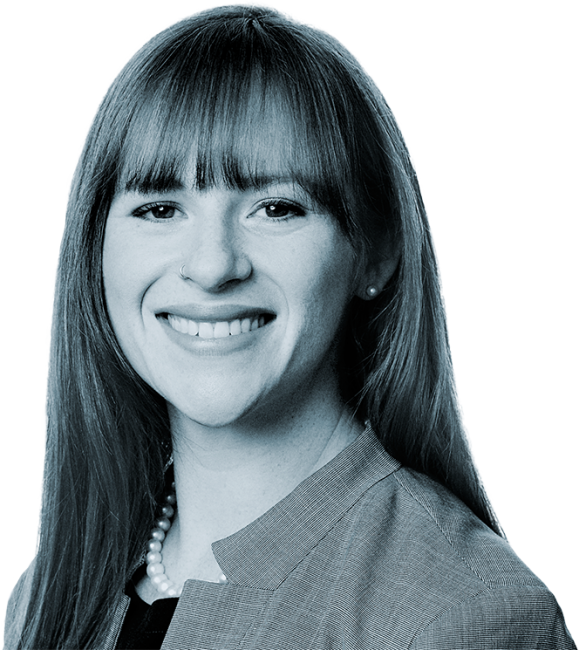Shirley J. McLaughlin
Principal

Principal

Ms. McLaughlin specializes in Formation and Tax-Exempt Status, Public Charities, Private Foundations, Grantmaking and Social Investing, Social Enterprise, Nonprofit Structures, Relationships and Affiliations, and International Charitable Transactions and Operations.
Ms. McLaughlin is a member of the American Bar Association, the California State Bar Association, and the Bar Association of San Francisco. She is currently the Secretary of Exempt Organizations Committee of the Taxation Section of the American Bar Association. She was formerly the Chair of the Exempt Organizations Committee of the California Lawyers Association Taxation Section
Ms. McLaughlin is admitted to the bar in the state of California.
Prior to joining Adler & Colvin, Ms. McLaughlin spent four years as a Director of Grants Administration for two of the largest community foundations in the country. In those roles, she was responsible for compliance with state and federal rules and regulations for public charity and donor advised fund distributions to charities and charitable projects around the world. This included extensive expenditure responsibility and public charity equivalency determinations, 501(h) lobbying and advocacy tracking and reporting, supporting organization grantmaking and due diligence, as well as evaluating other nonprofit compliance issues such as endowment restrictions, gift solicitations, fiscal sponsorships and designated funds.
As a Bay Area native, Ms. McLaughlin enjoys everything our community has to offer including foggy beaches, hikes in the redwoods, and wine tasting. You can find her marching in the Pride Parade, participating in alumni events and mentoring soon-to-be lawyers, remodeling her home with her partner, or cheering on her kids at school and sporting events.
This session will open with an overview of the requirements for forming, registering, and securing tax exemption for charitable nonprofit organizations in California. The faculty will address the unique regulatory framework that applies to organizations engaged in fundraising in California, including relatively recent developments in California laws governing online fundraising platforms. In addition to reviewing certain laws specific to operating a charitable organization in California, the faculty will also discuss how California governs use of charitable assets, distinguishes unrestricted and restricted assets, and regulates management and investment of assets held by charitable institutions. The session includes an overview of the California Nonprofit Integrity Act of 2004 and its impact on the financial management and disclosure obligations of California nonprofit organizations. The faculty will also address how California regulates major milestones in the life cycle of a nonprofit organization, including mergers, dispositions of assets, and dissolutions.
Speakers:
9:10 a.m. to 10:10 a.m. PT
San Francisco, California
This panel will look at many cutting-edge structures in philanthropic gifting, considering, for example, the best structures for getting a private corporation to be charitably owned, the use of multiple business entities and philanthropic entities in creating optimal structures, and creative uses of split-interest trusts to achieve tax savings.
Presenters:
8:30 a.m. to 9:45 a.m. PT
Anaheim, California
High-net-worth clients and charitable organizations have many options to advance their long-term philanthropic and charitable goals. And donor-advised funds (DAFs) appear to be a leading philanthropic vehicle. Recent 2022 reports estimate DAF grant values grew 60% since pre-pandemic times and have increased 400% over the past decade! Despite these reports, critics of DAFs contend, among other things, these statistics are misleading and that DAFs are a mere “warehouse” of charitable funds.
To clear up common DAFs misconceptions, we assembled an expert faculty for a deep-dive discussion into the federal tax rules applicable for DAF sponsoring organizations and donors to DAFs, legislative efforts to date, the evolving litigation landscape, and what both advocates and critics of donor advised funds have to say.
What You Will Learn
After attending this webcast, taught by seasoned practitioners, participants will be able to:
Understand the federal tax rules applicable to a tax-exempt organization sponsoring one or more donor advised fund
Apply the federal tax rules to a proposed DAF program in an existing tax-exempt organization
Understand the basic benefits and drawbacks of DAFs for donors depending on their philanthropic priorities
Understand the competing viewpoints with respect to whether or not and to what extent DAFs should be regulated
Register today! Questions will be submitted live to the faculty and all registrants will receive downloadable course materials to accompany the program.
Who Should Attend
Attorneys who represent nonprofits, work at nonprofits, or serve on nonprofit boards will benefit from this American Law Institute CLE program. This course will also educate accountants or development staff at tax-exempt organizations, especially staff members working with DAFs or accepting contributions from donor advisors. Finally, this course will also provide insight to estate planning attorneys who counsel high-wealth clients on charitable giving.
12:00 – 1:30 p.m. ET
Presenters:
Carrie Garber Siegrist, Goodwin Proctor LLP (Moderator)
Andrew Grumet, Polsinelli PC
Shirley McLaughlin, Adler & Colvin
The panel will discuss real-life examples of how charitable gifts get off track and offer practical suggestions for drafting gift agreements that effectively address future changes in circumstances, the use of race and gender gift restrictions, donor involvement, naming (and un-naming) rights, and amendments to the gift agreement.
2:00 – 3:30 p.m. EST
Co-Presenters: Alan F. Rothschild, Jr. and Michele A.W. McKinnon
Speakers:
Alejandra Cruz, Hope Wiliams, Shirley McLaughlin, Tia Katrina Taruc-Myers
Co-panelist: Christine Lim, East Bay Community Foundation
San Francisco, California
Berkeley, CA
This webinar will provide advisers to nonprofit and exempt organizations with a guide to responding to and remedying loss of tax exempt status.
Finding the right charitable vehicle for your clients – with a look at the year ahead
Portland, OR
Panel: Charitable Crowdfunding: What We Know, What We Expect
Moderator: Gene Takagi, NEO Law Group
Panelists: